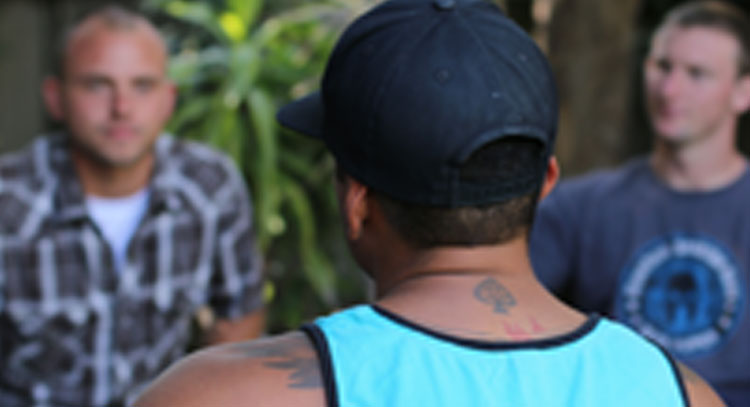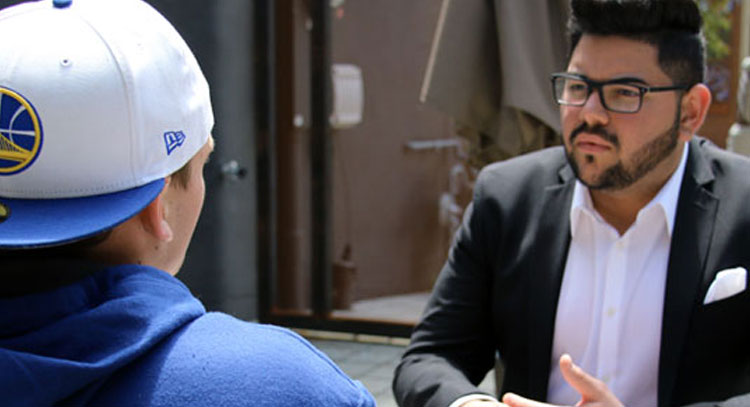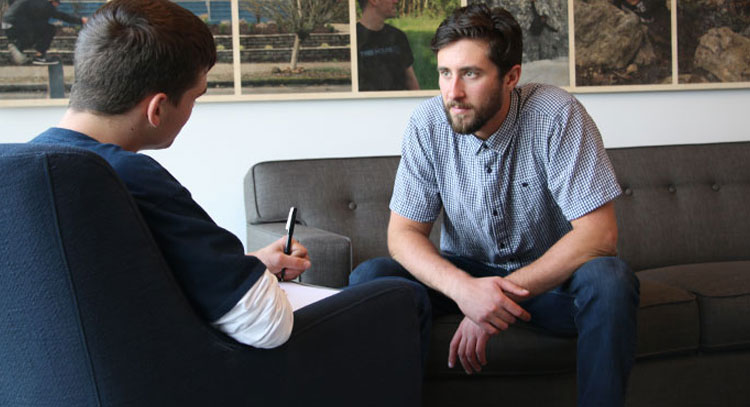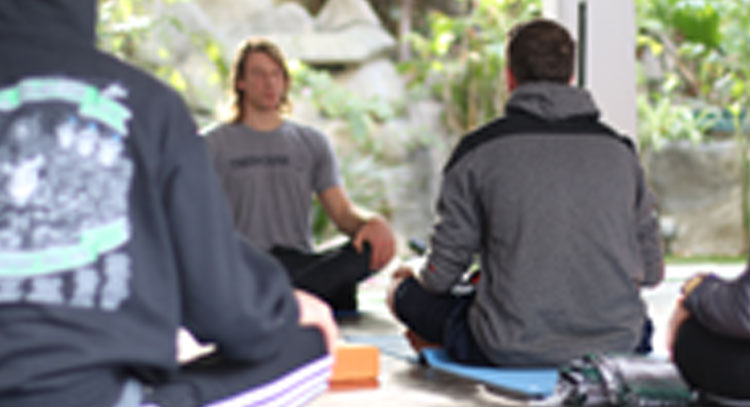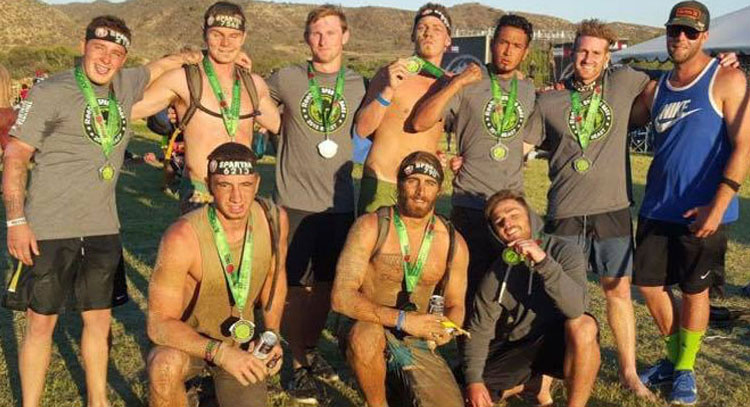Process Group
Human connection plays a crucial role in healing from an addictive lifestyle, and at Tree House, it serves as the bedrock of our approach to treatment. Addiction is an isolating disease that causes individuals to push away their families and loved ones, turning inward and forgetting that there are others they can rely on in difficult times. Men who are battling addiction may make choices that alienate those close to them, or they may feel as though no one in their life can understand what they are going through.
Group therapy serves to re-establish relationships with others, teaching participants to lean on their supporters and welcome advice and assistance. It encourages men to find ways to express themselves clearly and respectfully in group settings, to hear other perspectives and to manage emotional responses to others’ opinions. Group therapy also provides a useful outlet for learning critical interpersonal skills that will carry participants through life beyond recovery treatment: it sharpens emotional literacy, empathy and accountability to others, restoring men’s ability to be open and giving with friends, family or other loved ones.
At Tree House Recovery’s Portland, Oregon center, Process Group is our core style of group talk therapy. These small-to-mid-sized group setting sessions are guided by a counselor and are designed to nurture our clients’ ability to connect with one another by providing a safe and confidential space for everyone to share their stories. The group shares in the struggles and triumphs of everyone’s recovery process, strengthening bonds between team members and one’s own sense of belonging and resiliency. Gradually the narrative shifts from isolationist rhetoric and feelings of loneliness to an awareness of, and emphasis on, self-care, as well as the desire to be present and support others.
In Tree House Recovery’s Process Group sessions, we particularly strive to help our clients achieve:
- Personal Growth
- Conflict Resolution Skills
- Interpersonal Skills
- Sense of Belonging & Community
Benefits of Process Group
Group therapy takes the idea of group dynamics beyond discussion and conversation, moving into a space where participants dig deep to work through their experiences rather than simply share them. With the support of other group members and the guidance of a trained counselor or therapist, these sessions can become immensely healing, empowering and enlightening.
Process Group therapy sessions allow each person to see their concerns from different angles. In addiction recovery treatment, it’s helpful for participants to understand that they aren’t the only ones who have felt certain ways or experienced certain things, and to discover that there is more than one way of approaching a problem. Process Group participants are frequently amazed to find that the solutions to their worries have been in front of them all along, but that it takes accepting help and having trust in another’s perspective to see it. It can also be incredibly encouraging for participants to see others succeed in their recovery; this instills a sense of hope and confidence for those who feel that their own recovery might be out of reach. These are all experiences that cannot be gleaned from individual therapy alone, or even from forms of group therapy that spend less time on meaningful discussion. Process Group is central to recovery because it provides benefits that can’t be replicated by other approaches. Tree House Recovery seeks to instill a sense of community and camaraderie between our clients, and our Group Process sessions are a key component of this goal.
WHERE DOES PROCESS GROUP FIT IN RECOVERY?
Group therapy, either process group or in a different form, is a standard part of nearly every recovery center’s treatment program. It is a flexible and adaptable option that, despite having been used by clinicians for decades, is anything but simplistic or outdated. Group therapy sessions can always incorporate new techniques and approaches, and in fact, many innovative therapies are most effective in a group setting. Group therapy is often utilized throughout recovery treatment and even in aftercare programming. It can be appropriate for anyone in treatment for addiction or a mental health concern; its efficacy and applicability is part of the reason it is so broadly used.
At Tree House Recovery, Process Group is an essential component of our signature eight-part program. Every client at Tree House will engage in Process Group on a regular basis as fixture of their treatment plan, and Process Group will remain part of every client’s schedule for the duration of their stay in our program. Participants will work with the same core group of individuals in their Process Group sessions to establish a rapport, a deeper bond and a sense of trust.
After treatment at Tree House, many clients go on to attend similar group therapy sessions as part of outpatient programming, transitional treatment or aftercare. Group therapy sessions are widely available through local mental healthcare resources and can be beneficial at any point in long-term recovery. Our team can assist our clients in finding group programs in their community if they are interested in continuing this type of treatment beyond their time with us.
PROCESS GROUP AT TREE HOUSE RECOVERY
Group therapy can take many forms, including psychoeducation, skills development, cognitive-behavioral therapy, psychodrama, recreation therapy and experience groups. Process Group is the model that most people imagine when they think of group therapy. These sessions involve groups, typically five to ten people in size, seated with a therapist and talking through whatever is bothering them. The therapist or counselor helps to steer and mediate discussions to ensure each session is appropriate, on-topic and productive for everyone involved. Common Process Group topics include:
- Discussing personal experiences with substances
- Family histories
- Relationships and boundaries
- Discussing outcomes of other therapy sessions
- Talking through specific emotions
- Unpacking recent thoughts, concerns or feelings
- Trust-building exercises
- Psychoeducational sessions
At Tree House Recovery, we emphasize open-minded discussion, honest sharing and respect for others’ experiences. Our expert therapists are trained to keep sessions calm, to de-escalate emotionally charged situations and to involve every participant to maximize participation and benefits. We work with our clients to ensure they are part of a process group that fits their personality, and our therapists are experts in guiding sessions to keep them free from judgment, assumption or discrimination. The men in our programs frequently go on to stay in touch with their Process Group members, as the bonds created during these sessions can create lasting friendships that are incredibly valuable in long-term recovery.
CONTACT TREE HOUSE RECOVERY
Tree House Recovery is a men’s addiction treatment center located in Portland, Oregon. We welcome men from all walks of life who have experienced or are experiencing addiction to a range of drugs or alcohol. We value each of our clients’ stories, understanding that no two addictions are the same; in turn, we help individuals find a path to recovery that is uniquely their own. If you or your loved one is ready to take their first steps toward a sober life, contact Tree House Recovery today to learn more. Our team is available to answer your questions at 855-969-5181.
Additional Benefits:
- Peer support and abstinence accountability
- Reduced isolation
- Witnessing others’ recovery and understanding that sobriety is achievable
- Learning new ways to cope with their problems
- Developing social skills
- Objective feedback and alternate perspectives


